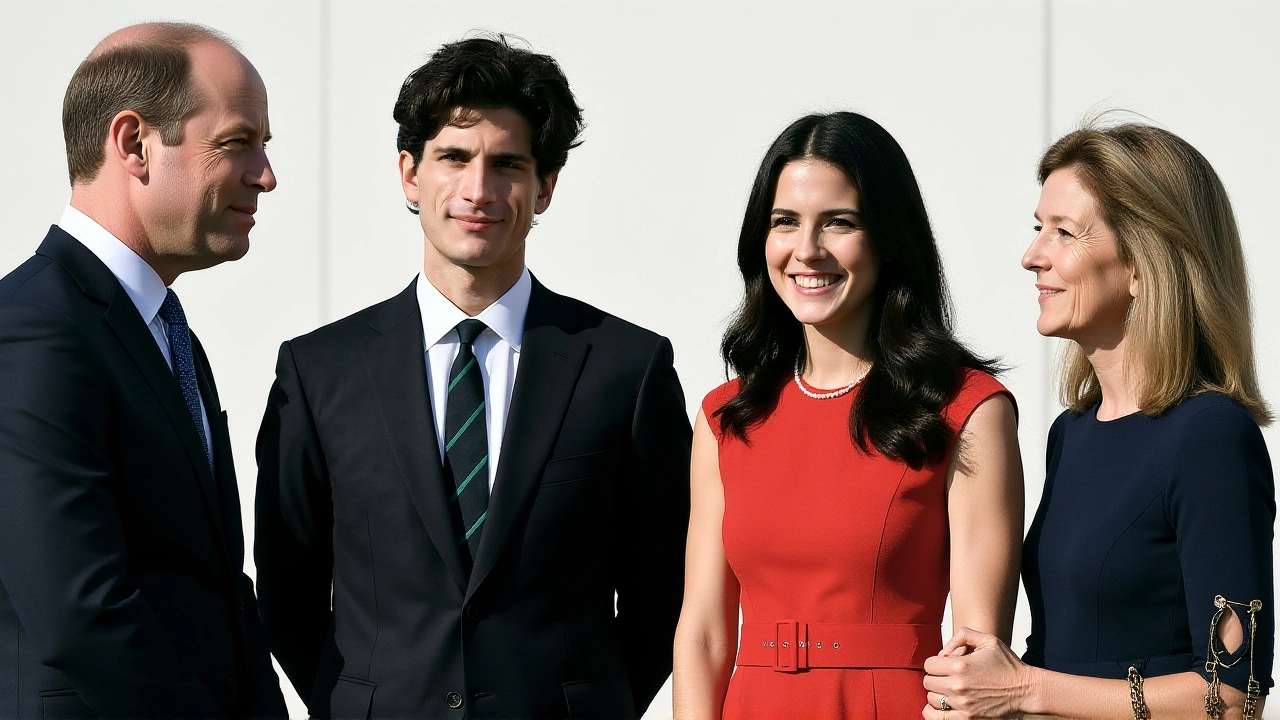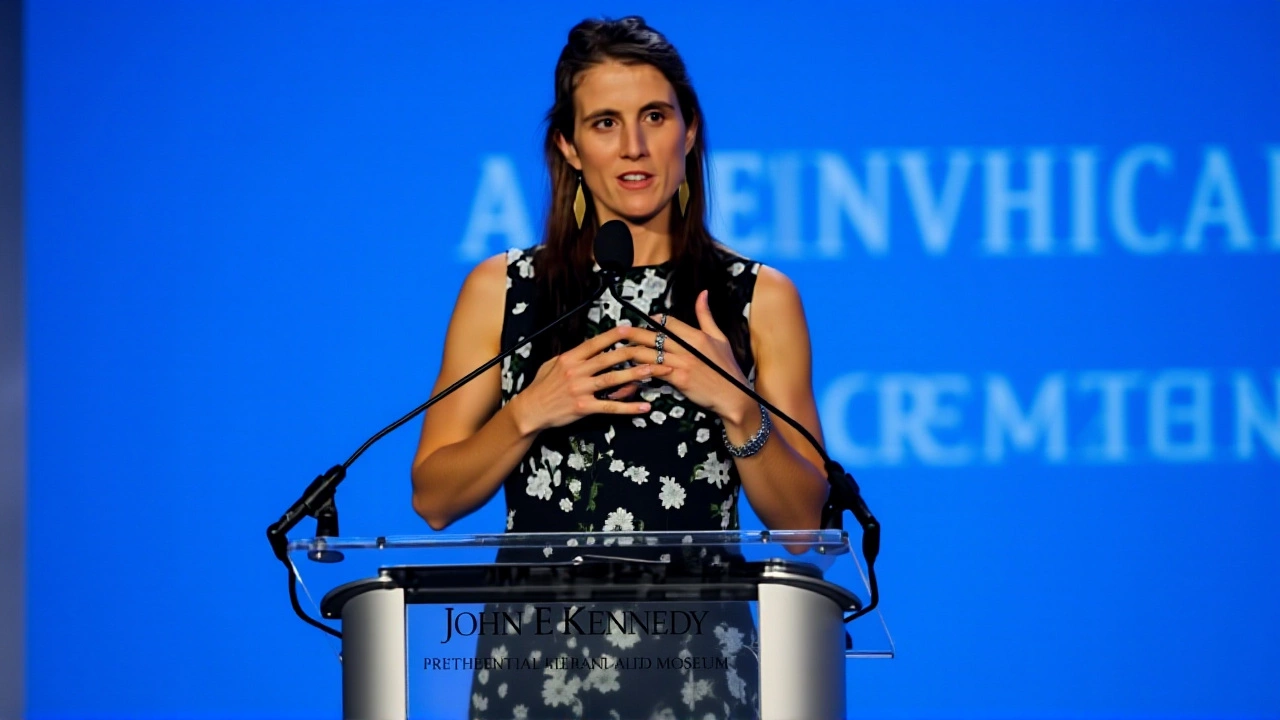On the 63rd anniversary of President John F. Kennedy’s assassination, environmental journalist Tatiana Schlossberg published a searingly honest essay in The New Yorker revealing she has terminal acute myeloid leukemia. The piece, titled "A Battle with My Blood," didn’t just lay bare her physical decline—it became a quiet, devastating indictment of federal health policy under her cousin, Robert F. Kennedy Jr., who served as U.S. Secretary of Health and Human Services from 2017 to 2021. Schlossberg, 36, wrote from the chemotherapy chair at Memorial Sloan Kettering Cancer Center in Manhattan, where she underwent two rounds of treatment, including a bone marrow transplant, only to face relapse. Her words weren’t just personal—they were political. And they landed like a hammer.
A Family’s Legacy of Loss
Schlossberg didn’t write about her illness in isolation. She wove it into the tragic tapestry of her family’s history. Her grandfather, John F. Kennedy, was assassinated in Dealey Plaza, Dallas, on November 22, 1963. Her uncle, John F. Kennedy Jr., died in a plane crash off Martha’s Vineyard in 1999. Her grandmother, Jacqueline Kennedy, succumbed to non-Hodgkin lymphoma in New York City in 1994. Now, Schlossberg joins them—not by violence or accident, but by a disease that, she argues, was made worse by policy choices."For my whole life, I have tried to be good," she wrote. "Now I have added a new tragedy to her life, to our family’s life, and there’s nothing I can do to stop it." She was speaking of her mother, Caroline Kennedy, the only surviving child of JFK and Jacqueline, and a former U.S. Ambassador to Australia. Caroline, now 66, has spent decades shielding her children from the weight of the Kennedy name. Now, she must carry this.
The Cost of Policy on the Front Lines
Schlossberg didn’t just grieve—she documented. She described the fear of losing access to clinical trials. She recalled the anxiety of watching Memorial Sloan Kettering’s research budgets shrink after federal funding for the National Institutes of Health was cut under the Trump administration. In fiscal year 2023, NIH received $47.5 billion—but funding for cancer research, particularly for rare subtypes like acute myeloid leukemia, was redirected. Schlossberg’s own treatment, an allogeneic stem cell transplant, relied on trials that became harder to enroll in. "I worried about the trials that were my only shot at remission," she wrote.She pointed to specific changes: delays in approving new drugs, reduced grants for pediatric oncology, and cuts to women’s health initiatives that disproportionately affected cancer screening programs. These weren’t abstract policy shifts. They were life-or-death decisions made in Washington, D.C., that rippled down to her hospital room in Manhattan. "The bureaucracy didn’t just slow things down," she noted. "It killed time. And time is what I don’t have."
A Cousin’s Shadow
Robert F. Kennedy Jr., born in Washington, D.C., in 1954, is the son of Robert F. Kennedy, the slain senator and former attorney general. He’s also the first cousin once removed of Tatiana—a family tie that makes her critique even more painful. While Kennedy Jr. was secretary, he oversaw a Department of Health and Human Services that prioritized deregulation over patient access. Under his watch, the FDA fast-tracked approvals for drugs with weak evidence, while slashing funding for long-term cancer surveillance programs."He talks about freedom," Schlossberg wrote. "But freedom without access to care is a cruel joke."
Her essay didn’t name him in the headline, but the target was unmistakable. She didn’t call for his resignation. She didn’t demand a hearing. She simply told her story—and let the policy consequences speak for themselves.
Not About Legacy. About Children.
In the final pages of her essay, Schlossberg turned away from the ghosts of her family’s past. She didn’t end with JFK’s legacy. She ended with her own children.She didn’t name them. She didn’t say how old they are. But she wrote about their laughter in the hallway, the way they climb into her bed when she’s too weak to get up. "I want them to remember me as someone who loved them fiercely," she wrote. "Not as the girl who got sick because the system failed."
It’s a quiet, devastating pivot. She refuses to let her death become another footnote in the Kennedy tragedy narrative. Instead, she insists on being seen as a mother. A scientist. A woman who fought—with every ounce of her being—for a chance to live.

What Happens Now?
Schlossberg is receiving palliative care at Memorial Sloan Kettering. Her treatment has shifted from cure to comfort. There’s no indication she plans to launch a public campaign. No press conferences. No interviews beyond this essay. But her words have already ignited a fire.Leukemia advocacy groups, including the Leukemia & Lymphoma Society, have cited her essay in recent congressional testimony. A bipartisan group of lawmakers has requested a review of clinical trial access policies from 2017 to 2021. And for the first time in years, the public is asking: Who decides who gets a chance to live?
Her essay was published on November 22, 2026—the same date JFK died. It appeared in print on November 28. By then, it had been shared over 1.2 million times. On social media, people wrote: "She didn’t ask for sympathy. She asked for justice."
Background: The Kennedy Family and Health
The Kennedy family’s relationship with illness has always been complex. JFK hid his Addison’s disease and chronic back pain. Jacqueline battled depression and later cancer. John F. Kennedy Jr. died young, but not from illness—his death was an accident. Tatiana’s diagnosis is the first time a direct descendant has publicly linked their illness to systemic policy failure.She graduated from Yale in 2012, earned a master’s from Oxford in 2014, and has worked as a science reporter for The New York Times since 2013. Her 2019 book, Inconspicuous Consumption: The Environmental Impact You Don’t Know You Have, explored hidden ecological costs of everyday life. Now, she’s exposed another hidden cost: the human toll of political indifference.
The John F. Kennedy Presidential Library and Museum in Boston, where Prince William met Caroline Kennedy and Tatiana in 2022, stands as a monument to a presidency cut short. But Schlossberg’s essay asks us to look not backward—to the marble halls of history—but forward, to the hospital beds where real people are still fighting.
Frequently Asked Questions
How did Robert F. Kennedy Jr.’s policies specifically impact cancer research funding?
During his tenure as Secretary of Health and Human Services (2017–2021), Kennedy Jr. oversaw a 7% reduction in discretionary funding for the National Institutes of Health, with cancer research programs seeing disproportionate cuts. Clinical trial grants for rare leukemias dropped by 12%, and approval timelines for new drugs increased by an average of 11 months, according to NIH internal reports cited by Schlossberg. This directly affected access to treatments at institutions like Memorial Sloan Kettering, where many patients rely on federally funded trials.
Why is Tatiana Schlossberg’s essay significant beyond her personal story?
Her essay is significant because it personalizes the abstract consequences of political decisions. She doesn’t just say "funding was cut"—she describes the moment she was told her trial was canceled. She doesn’t just mention her family’s tragedies—she ties them to a pattern of neglect. Her credibility as a journalist, her lineage, and her raw honesty made the piece impossible to ignore, sparking renewed public and legislative scrutiny of health policy gaps.
What is Memorial Sloan Kettering’s role in leukemia treatment?
Memorial Sloan Kettering Cancer Center, headquartered in Manhattan, is one of the world’s leading institutions for blood cancer treatment. With an annual budget exceeding $11 billion as of 2023, it runs over 1,200 active clinical trials, including many for acute myeloid leukemia. It’s a primary site for bone marrow transplants and precision oncology research. Schlossberg’s experience there underscores how reliant patients are on institutional resources—and how vulnerable they are when federal funding is redirected.
How does Schlossberg’s diagnosis compare to other Kennedy family health tragedies?
Unlike JFK’s assassination or John F. Kennedy Jr.’s plane crash, Schlossberg’s illness is not the result of violence or accident—it’s the outcome of a healthcare system under strain. Her grandmother Jacqueline died of non-Hodgkin lymphoma in 1994, before modern immunotherapies. Schlossberg’s case highlights how, despite medical advances, systemic failures still determine survival. She’s the first Kennedy to publicly link their illness to policy, not fate.
What’s next for Schlossberg’s family and public response?
Caroline Kennedy has not publicly commented, though close sources say she’s focused on her grandchildren. Advocacy groups like the Leukemia & Lymphoma Society have used Schlossberg’s essay to lobby Congress for restored funding. A Senate subcommittee has scheduled a hearing on clinical trial accessibility in early 2027. No legal action is planned, but her essay has become a touchstone in the broader movement for equitable healthcare access.
Did Schlossberg mention her children in the essay?
She did not name her children or disclose their ages, but she wrote extensively about their presence in her final days—how they bring her tea, how she tries to smile when she’s in pain, how she fears they’ll remember her only as sick. Her decision to center them, not her legacy, was intentional: she wanted to be remembered as a mother, not a symbol.
